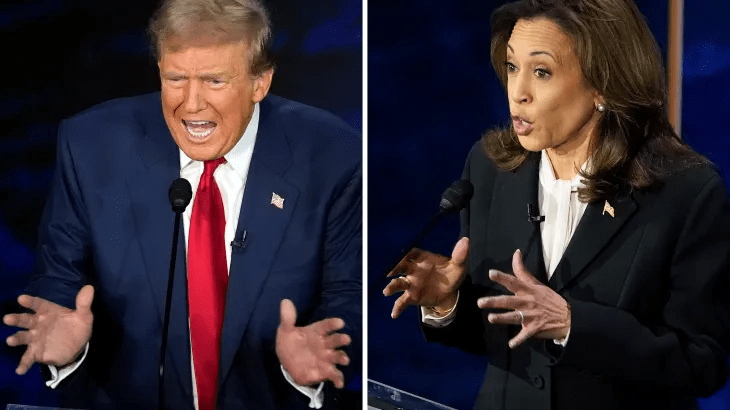
Kamala Harris and Donald Trump Debate: Key Economic Statistic on Inflation-Adjusted Income Could Influence 2024 U.S. Election Outcome
Fiona Nanna, ForeMedia News
8 minutes read. Updated 2:02PM GMT Wed, 11 September, 2024
Hours before United States Vice President Kamala Harris and former President Donald Trump faced off in their high-stakes presidential debate, the U.S. Census Bureau released key economic data that could prove crucial to the race for the White House. Though neither candidate mentioned these figures during their fiery exchange, they offer a telling glimpse into the economic strengths and weaknesses of each contender.
According to the Census Bureau, the median income of U.S. households, adjusted for inflation, rose last year for the first time since the COVID-19 pandemic. In 2023, the median household income reached $80,610, up from $77,450 in 2022, after three consecutive years of decline. However, the latest figure still falls slightly below the pre-pandemic peak of $81,210 recorded in 2019.
This economic statistic sheds light on the current dynamics of the presidential race, illustrating why Harris and Trump are running neck and neck. For many American voters, the economy remains the top issue, as highlighted in a recent Pew Research Center poll, where 81% of registered voters said the economy was “very important” in deciding their vote—16 points higher than healthcare.
Despite Trump’s polarizing persona and substantial political baggage, he consistently rates higher than both Harris and current President Joe Biden on economic issues. The recent Census data provides a possible explanation: during most of Harris’s tenure as Vice President under Biden, Americans experienced a decline in spending power due to high inflation, which peaked at 9.1% in mid-2022. In contrast, under Trump’s administration, inflation-adjusted median household income rose steadily, peaking at $81,210 in 2019 before the pandemic struck.
Although inflation has since eased, hovering just under 3% in July, Harris faces an uphill battle in convincing voters that the Biden administration’s economic stewardship is on track. Recent polling suggests a pervasive sense of economic nostalgia for the Trump years; a CBS News poll in March found that 65% of respondents remembered the Trump-era economy as strong, nearly double the number who felt the same about Biden’s tenure.
As Vice President, Harris must walk a tightrope, attempting to claim credit for the positive aspects of Biden’s economic legacy—such as robust growth and low unemployment—while deflecting blame for the inflation that has plagued the administration’s popularity. A recent CBS News poll indicates that nearly half of voters believe prices will continue to rise if Harris is elected, compared to 37% who expressed the same concern about Trump.
Tuesday’s debate provided a clear snapshot of the candidates’ divergent economic visions. Trump attacked Harris on the rising cost of living, labeling inflation as “a disaster” for everyday Americans. “People can’t go out and buy cereal or bacon or eggs or anything else,” Trump declared. “The people of our country are absolutely dying with what they’ve done.”
Harris, in turn, criticized Trump’s economic plans, arguing that his tax cuts primarily benefit billionaires and corporations, while his proposed tariffs on imports would effectively serve as a “sales tax” on the middle class. She outlined her vision for an “opportunity economy,” emphasizing initiatives such as a $50,000 tax deduction for new small businesses and a $6,000 child tax credit. “What I have done and what I intend to do is build on the hopes and aspirations of the American people,” she asserted.
With the election teetering on a knife’s edge, it remains uncertain whether the economic debate between Harris and Trump will significantly sway the electorate. Yet, with voters keenly attuned to economic issues, the outcome of this battle could very well decide who takes the oath of office next January.

